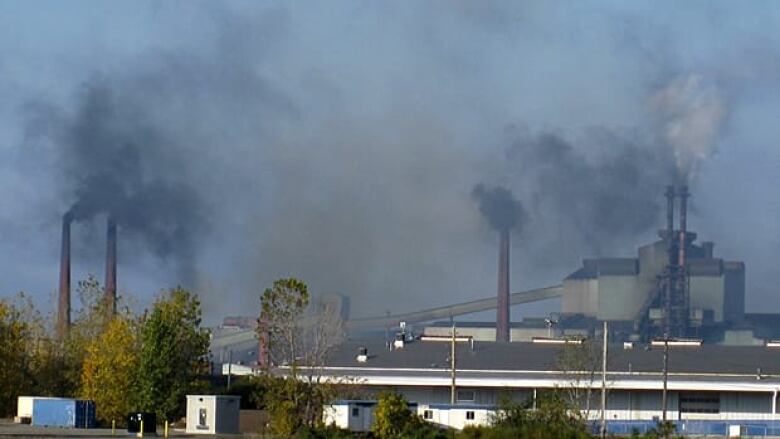Hamilton bylaw aims to rein in industrial emissions

City hall ismaking a bylawto restrict the amount of pollution emitted by local industry.
Councillorsvoted Monday to develop a bylaw, which would be the second of its kind of Ontario. Thenew law wouldrestrictthe amount fine particulate matter, which causes health and respiratory problems.
Coun. Brian McHattie, who said Hamilton has one of the "most challenged airsheds in Ontario," introduced the motion at general issues committee. It passed unanimously.
The move is inspired by the particulate matter reduction bylaw in Oakville that holds industry players, like an area gas plant, accountable for their practices.
"The experience to date has been positive," McHattie said. "There has been compliance achieved through the bylaw. With the exception of one case, all industry is making changes to their processes."
The culprit McHattie's potential bylaw targets is PM 2.5, a microbe with known health risks to the respiratory system.
"2.5 microbes get into the lungs and have difficulty getting back up," said Lynda Lukasik, director of Environment Hamilton, who attended the meeting in support of the motion.
About 186 Hamiltonians die per year from air pollution, McHattie said.
According toAir Quality Ontario, PM 2.5 is made up of sulphate or nitrate particles, elemental or organic carbon and soil. It could get into the air from smog from industry plants or drag-out of soil and other particles from industry yards or construction sites.
While the province regulates some forms of matter, it has no standards for fine particulate matter, Lukasik said. She urged councillors to step up, like the town of Oakville did with their "progressive approach to apply pressure" to Ontario implement standards and to industry to be "more motivated to do the right thing."
"There are other jurisdictions that have gotten a handle on this," she said, referencing the U.S. Environmental Protection Agency that implemented standards for fine particulate matter in 2012.
Lukasik said she'd like to see the bylaw include standards and consequences for both industry and construction sites, as well as a community "right to know" element that lists sources of fine particulate matter.
City staff will review Oakville's bylaw and find a way to implement a similarone in Hamilton. The motion must first be ratified by city council at Friday's meeting.
with files from CBC's Samantha Craggs












_(720p).jpg)


 OFFICIAL HD MUSIC VIDEO.jpg)
.jpg)



























































































